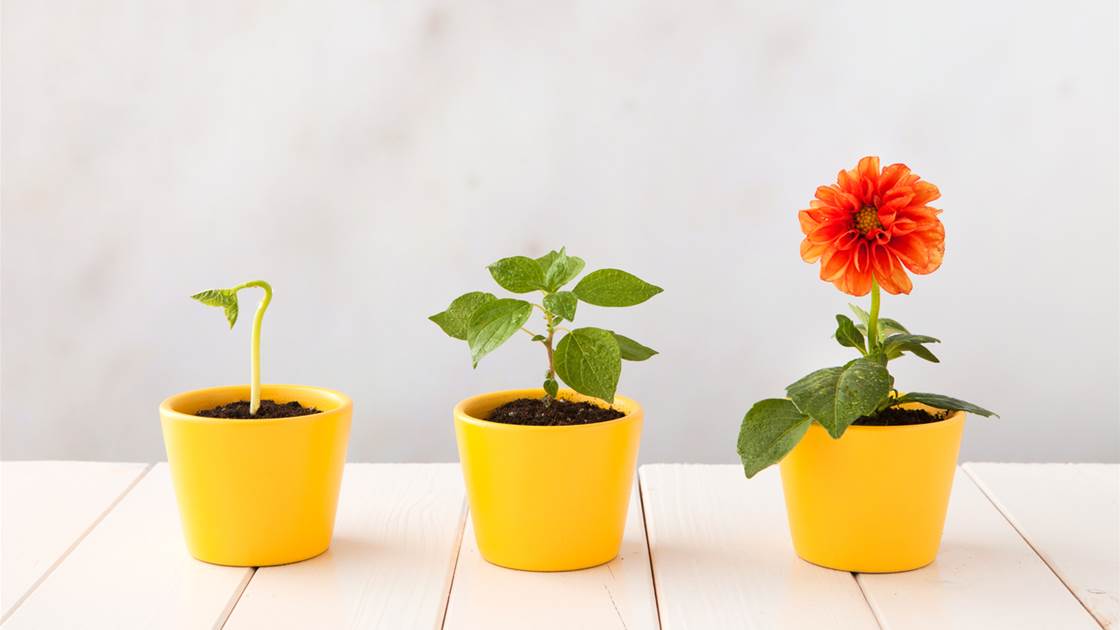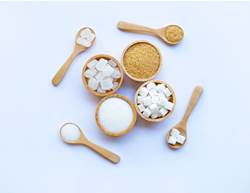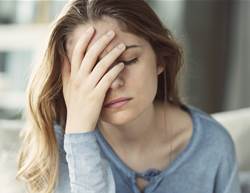Eavesdrop on any given group of women and you’re bound to hear the words, “I’m so tired” or “I have no energy left”. Ask a group of doctors and most will agree that the main complaint they get in their rooms is fatigue, tiredness and lack of energy. It begs the question: are we having a human energy crisis? A recent University of Sydney Business School survey revealed that Aussie women, on average, feel that, out of a 10-day cycle, they only have enough energy for four of those days, and it’s not always due to a lack of sleep. So, what then could be causing this lack of spark? And is there anything you can do to get real results? Let’s break it down.
In The Blood
A very common cause of tiredness is anaemia. “There are many different types of this condition,” says Dr Emma Rees, specialist in women’s health and founder of digital healthcare solution Femme. In broad terms, anaemia is when your body isn’t creating enough red blood cells or you lose red blood cells due to bleeding (for example, heavy periods or bleeding in the gut). This means you have less ability to transport oxygen around your body to where it’s needed. “This can lead to tiredness, as less oxygen is delivered to the tissues and cells that need it, and your heart has to work harder to transport as much oxygen to the cells
as possible,” she explains. Another consideration is chronic illnesses that could impact your body’s ability to make red blood cells efficiently. Treatments for anaemia depend on the cause, so a proper diagnosis by your doctor is key to having this addressed correctly.
Check Your Thyroid
An underactive thyroid, also known as hypothyroidism, is more common in women than in men, with an estimated 10 times more women than men affected over a lifetime, according to the Australian Thyroid Foundation. “The thyroid gland is the body’s metabolic regulator,” says Dr Rees. “Located in your neck, it produces hormones that affect the metabolic rate.” If the gland can’t, or doesn’t, produce enough thyroid hormone, it’ll have an impact on your energy levels, making you feel tired or slower than usual. Symptoms can also include dry skin and hair, constipation, weight gain, feeling cold, depression and mental sluggishness. Diagnosis is usually made with a blood test and it can be treated. If you have concerns that your thyroid may not be doing its job, check in with your doctor.
Hello, Menopause
The average age that most women hit menopause is about 51. But, from about the age of 45, it’s very normal to experience some perimenopausal symptoms. “During this transitional phase, production of oestrogen falls and many symptoms can result, with tiredness ranking as one of the main complaints,” says Dr Rees. At this time, your metabolic rate is also slowing down and can be a cause of fatigue in some women. Symptoms that are accepted as part of menopause – for example, hot flushes and how often you wake up to go to the bathroom – can also interfere with the amount and quality of sleep you’re getting, leaving you feeling a little less fresh in the morning, she says. The most effective treatment for menopause is still menopausal hormone therapy (MHT), which helps ease symptoms, such as night sweats, that could interfere with your sleep. Your doctor can do a hormone test to see whether your body is in perimenopause.
Heard of Technoference?
It’s when your phone saps you of energy. A recent Queensland University of Technology survey has found that one in five women are losing sleep due to bad phone habits, which include spending time on their device when they could be snoozing or resting. Combine that with the fact that using your phone just before bed makes you more alert, plus that the blue light emitted by electronic devices is proven to disrupt sleep, and you have a wide-eyed night ahead. The moral of the story? Keep your phone out of your bedroom.
Not Enough Sexy Time
That old excuse ‘not tonight, honey’ might be making you more tired. According to experts, good, frequent sex is one of the best things you can do to pep up your mood, get rid of fatigue and give you a little hop in your step. It stimulates brain function, burns kilojoules, increases
oxygenation, lifts immunity and relieves stress and depression. If you’re finding that you’re not as interested as you once were, it might be worth having your testosterone checked. Not only does it play a critical role in a healthy libido, but also on your energy levels and mood. And as a little tip, the pros advocate that you have a session in the morning for the best energy-boosting
benefits. You’ll feel invigorated (we promise).
Five ways to boost your energy quickly
1. Cut down on booze
A tipple to relax at night may not be the best idea, as alcohol has been shown to interfere with the quality of your sleep. Plus, excessive drinking has been linked to an increased risk of depression, a major energy drainer.
2. Avoid Junk Food
Where you can, cut out the junk. Rapidly absorbed carbs from processed, sugary foods and drinks (cakes, lollies, chocolates, fizzy drinks) give you that instant buzz because they spike your blood sugar, but the drop is equally as fast, causing an energy slump, says dietitian Leif Lagesen, head health coach at Andi Health. Sweets are also low on micronutrients, such as calcium, magnesium and iron, which you need for good health.
3. Eat Enough Food
“If you’re restricting and reducing your kilojoule intake too much, it can lead to fatigue and also have an adverse impact on your emotions,” says Dr Rees. And even if it’s simply because you’re busy or stressed, still try to eat healthy, smaller regular meals (avoid the urge to skip meals) to achieve a more steady energy release throughout the day.
4. Try A Little Coffee
"The caffeine in coffee is a mild stimulant that accelerates the transmission of messages between your brain and body, making you feel more alert,” says Leif. It can make you feel more awake and, in small amounts, is fine as part of a healthy diet. “Caffeine has also been shown to have a favourable effect on exercise, resulting in a lower impression of effort (the exercise ‘feels’ easier) and less perception of fatigue,” he adds.
5. Check In On Your Sleep
When struggling with undiagnosed sleep apnoea (a sleep disorder in which breathing repeatedly stops and starts) or snoring, it not only disturbs your quality of rest, but also affects your oxygen levels, says Dr Rees. There are treatments available that can address such conditions and help improve daily fatigue, so talk to your GP about it.
Struggling At Work? Here are a few things you can try
Stay Hydrated
Even moderate dehydration can affect your energy and mood, according to a study in the Journal of Nutrition. But that doesn’t mean you need to drink endless amounts. In fact, experts say your body is pretty good at judging when it needs hydration; we’re just bad at listening to our body’s signals. If you’re feeling sluggish, try drinking three glasses of water in a row. When a study group in the UK did this, researchers found that the people felt a spike in mental energy and sharpness.
Take a Break
Tired eyes? You might need to step away from your computer screen for a bit. We blink between 15 and 20 times a minute, and researchers found that we blink about half that amount when sitting in front of a screen, resulting in dryness and irritation. If your job requires you to have a fair amount of computer time, try this: every 20 minutes, stare at something about six metres away for about 20 seconds. And while you’re at it, make sure your screen is roughly 50cm from your face to help prevent eyestrain. Better yet, why not go outside (minus your phone) for a walk to refresh?
3. Snack Better
You’ve hit that 3pm tired wall and you think you’ll snack on a protein bar, because it must be better than that chocolate peeking at you from your snack drawer, right? Wrong. Many protein bars and other pre-made munchies are actually loaded with sugar. If you love a bar, it needs to pass these two tests:
1 You recognise and can pronounce all the ingredients.
2 The amount of grams of sugar is in single digits and fibre is in double digits. Our choice? Try some dark chocolate (with at least 70 per cent cocoa), as it’s packed with antioxidants that can help fight off lethargy.










